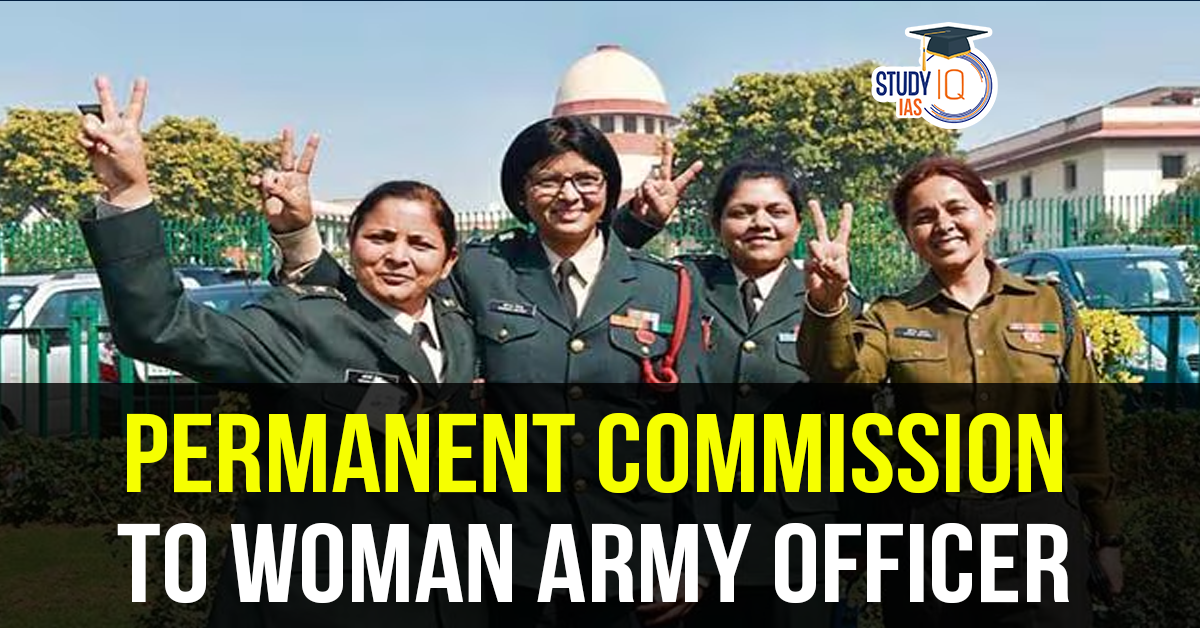The Supreme Court exercised its extraordinary powers under Article 142 of the Constitution to grant permanent commission to a woman Army officer with a distinguished service record who was wrongly excluded from the consideration when other similarly placed officers were given the benefit.
Article 142 of Indian Constitution
- Empowers the Supreme Court: Article 142 authorizes the Supreme Court to issue any decree or order required to ensure “complete justice” in cases before it.
- These decrees or orders are binding and enforceable across the entire territory of India.
- Goes Beyond Legal Constraints: The provision allows the Court to transcend existing laws or statutes to deliver justice.
- This enables the Court to perform roles that may overlap with executive or legislative functions when necessary.
- Related Constitutional Provisions: Article 142 is supported by other provisions such as:
- Article 32: Provides the right to constitutional remedies.
- Article 141: Mandates all courts in India to follow the Supreme Court’s decisions.
- Article 136: Allows for Special Leave Petitions (SLPs).
- Together, these articles form the basis for judicial activism, allowing the Supreme Court to occasionally override legislation to achieve complete justice.
- Role in Public Interest Cases: Article 142 empowers the Court to take action in matters involving public interest, fundamental rights, human rights, and constitutional values.
- This reinforces the Supreme Court’s role as the guardian of the Constitution, ensuring protection against rights violations.
Other Instances Where SC Invoked Article 142 |
| ● Overturning the Post of Mayor of the Chandigarh Municipal Corporation (2024): The Supreme Court invoked Article 142 in the Chandigarh mayoral election to uphold the integrity of the electoral process.
○ The presiding officer had wrongfully invalidated eight votes favoring the opponent, leading to an incorrect declaration of the winner. ● Ayodhya Ram Janmabhoomi-Babri Masjid Case (2019): The Supreme Court invoked Article 142 to allot the disputed land for the construction of a Ram Temple and ordered a separate 5-acre plot for the Muslim community to build a mosque. ● Taj Mahal Conservation (1996): The Court invoked Article 142 to order the relocation of industries and implement measures to protect the monument. ● Union Carbide Corporation vs Union of India (1991): The Supreme Court ordered the Union Carbide Corporation to pay $470 million in compensation to the victims of Bhopal Gas Tragedy (1984). ○ The court highlighted that its powers under Article 142 allowed it to provide remedies beyond the limitations of existing laws. |
UPSC PYQ |
| Q. With reference to the Constitution of India, prohibitions or limitations or provisions contained in ordinary laws cannot act as prohibitions or limitations on the constitutional powers under Article 142. It could mean which one of the following? (2019)
(a) The decisions taken by the Election Commission of India while discharging its duties cannot be challenged in any court of law. (b) The Supreme Court of India is not constrained in the exercise of its powers by laws made by the Parliament. (c) In the event of grave financial crisis in the country, the President of India can declare Financial Emergency without the counsel from the Cabinet. (d) State Legislatures cannot make laws on certain matters without the concurrence of Union Legislature. Ans: B |


 World Veterinary Day 2025: Theme, Histor...
World Veterinary Day 2025: Theme, Histor...
 Pahalgam Terror Attack: All Eyes on Paha...
Pahalgam Terror Attack: All Eyes on Paha...
 Serious Fraud Investigation Office (SFIO...
Serious Fraud Investigation Office (SFIO...





















